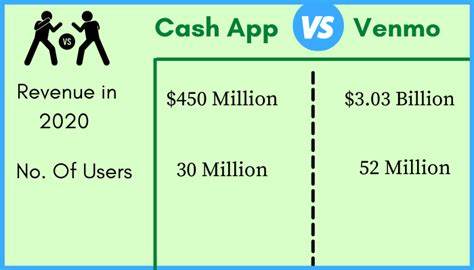In the era of digital finance, mobile payment platforms have transformed the way we handle money. Cash App and Venmo are two prominent players in this space, offering users the convenience of sending, receiving, and managing funds through their smartphones. In this article, we’ll conduct an in-depth comparison of cash app vs venmo, highlighting their features, differences, and considerations to help you decide which platform aligns better with your financial needs.
Ownership and History
Contents
- Cash App: Developed by Square Inc., Cash App (formerly known as Square Cash) was launched in 2013 as a peer-to-peer payment platform that expanded to offer additional financial services such as investing and Bitcoin trading.
- Venmo: Acquired by PayPal in 2013, Venmo was founded in 2009 with a focus on seamless peer-to-peer transactions and social interactions.
User Interface and Experience
- Cash App: Known for its straightforward and user-friendly design, Cash App offers an intuitive interface that prioritizes simplicity. It features a clean and organized dashboard for managing transactions and balances.
- Venmo: Venmo’s interface is known for its social feed and emojis, allowing users to add context to transactions and interact with friends’ payments in a unique and engaging way.
Transaction Speed and Limits
- Cash App: Cash App transactions are typically instant, providing users with quick access to funds. The platform has specific limits for sending and receiving money, and these limits can be increased through verification.
- Venmo: Venmo offers near-instantaneous transactions for some users, especially with instant transfers. However, standard transactions may take one to three business days to complete. Limits can vary based on account verification and transaction history.
Fees
- Cash App: While basic person-to-person transactions are typically fee-free, Cash App may charge fees for expedited transfers and for buying and selling Bitcoin.
- Venmo: Venmo charges fees for certain transactions, such as instant transfers and credit card payments. Standard peer-to-peer transactions using a linked bank account or debit card are often fee-free.
Business Use and Integration
- Cash App: Cash App provides businesses with features like Cash App for Business, enabling them to accept payments and provide a digital payment solution to customers.
- Venmo: Venmo is exploring options for business profiles and integrations with merchants, allowing businesses to accept payments and interact with customers on the platform.
International Use
- Both Cash App and Venmo are primarily used within the United States, and international use is limited.
Cash App and Venmo each offer distinct advantages and cater to different user preferences. Cash App’s simplicity and quick transaction speeds make it an appealing choice for those who prioritize efficiency and straightforwardness. On the other hand, Venmo’s social interactions and engagement features make it a popular option for users who enjoy sharing payment descriptions and emojis with friends.
The decision between cash app vs venmo ultimately depends on your specific needs, priorities, and desired features. Both platforms have transformed the way we handle digital payments, providing convenient and accessible solutions for managing money in our increasingly cashless society.

